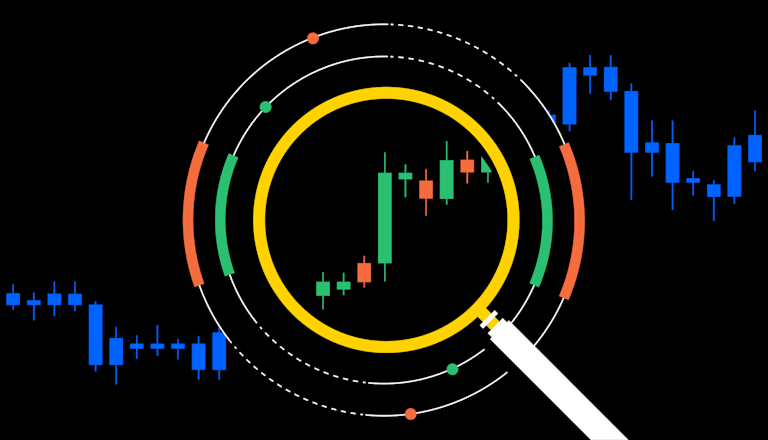
Swing Trading Crypto: A Comprehensive Guide to Intermediate Trading Strategies
Welcome to the exciting world of swing trading crypto, where savvy traders capitalize on price fluctuations in the volatile cryptocurrency market. Swing trading represents a middle ground between day trading and long-term investing, allowing traders to capture short- to medium-term gains. In this article, we will explore what swing trading is, the strategies involved, the tools you need, and the risks to be aware of when trading cryptocurrencies. For those looking to deepen their understanding and improve their trading skills, swing trading crypto click here.
What is Swing Trading?
Swing trading is a trading style that seeks to capture gains in a stock or other financial instruments over a period of days to weeks. Unlike day trading, where positions are opened and closed within a single day, swing traders hold positions for longer, enabling them to benefit from the natural price swings of an asset. In the context of cryptocurrency, these swings can be pronounced due to the high volatility of the market.
Characteristics of Swing Trading
1. **Time Frame**: Swing traders typically hold positions for several days to a few weeks. This differs significantly from day traders, who may hold positions for mere minutes or hours.
2. **Market Analysis**: Swing trading relies heavily on technical analysis, utilizing chart patterns and indicators to make informed decisions.
3. **Profit Potential**: With well-timed trades, swing traders can achieve substantial profits. However, incorrect timing can also lead to significant losses, highlighting the importance of risk management.
Getting Started with Swing Trading Crypto
To begin swing trading in the cryptocurrency market, follow these steps:
1. **Choose a Reliable Exchange**: Research and choose a reputable cryptocurrency exchange that offers the altcoins you wish to trade.
2. **Create a Trading Plan**: A well-defined trading plan includes your trading goals, entry and exit strategies, and risk management techniques.
3. **Develop Technical Analysis Skills**: Familiarize yourself with chart patterns, support and resistance levels, and key indicators like RSI (Relative Strength Index) and MACD (Moving Average Convergence Divergence).
4. **Risk Management**: Always implement a risk management strategy to help protect your capital. Set stop-loss orders and define how much of your portfolio you are willing to risk on each trade.
Popular Strategies for Swing Trading Crypto
There are several strategies swing traders employ to maximize their gains in the cryptocurrency market:
1. Trend Following
Trend following is a common strategy where traders identify and follow the prevailing trend of a cryptocurrency. By buying in an upward trend and selling in a downward trend, traders can capitalize on market momentum.
2. Breakout Trading
Breakout trading involves entering a position when the price breaks above resistance or below support levels. This strategy relies on the idea that the price will continue to move strongly in the direction of the breakout.
3. Reversal Trading

Reversal trading seeks to identify potential trend reversals. This strategy requires a keen eye for market signals that indicate a shift in momentum, often using indicators like the RSI to find overbought or oversold conditions.
Tools for Swing Trading Crypto
Traders utilize various tools to aid their swing trading strategies:
1. Charting Platforms
Tools like TradingView or Coinigy provide advanced charting options, allowing traders to analyze price movements visually.
2. Technical Indicators
Indicators like moving averages, Bollinger Bands, and Fibonacci retracement levels can provide insights into potential price action.
3. News and Sentiment Analysis Tools
Staying updated with news surrounding the crypto market and utilizing sentiment analysis tools can help traders anticipate price movements influenced by external factors.
Understanding Risks in Swing Trading
While swing trading can be lucrative, it comes with inherent risks. Here are some key aspects to consider:
1. Market Volatility
The cryptocurrency market is notoriously volatile, which can lead to rapid price swings. While this presents opportunities for profit, it can also result in significant losses if the market moves against you.
2. Emotional Trading
Emotions can cloud judgment. Fear and greed often lead traders to make impulsive decisions. Adhering strictly to your trading plan can mitigate these feelings.
3. Lack of Risk Management
Not employing a consistent risk management strategy can expose traders to unnecessary losses. Always know your limits and set stop-loss orders.
Conclusion
Swing trading crypto can be a rewarding strategy for those who take the time to understand the market dynamics and develop a solid trading approach. With practice and the right tools, you can navigate the challenges of the cryptocurrency landscape and potentially reap significant rewards. Always remember to stay informed and manage risks wisely to thrive in this fast-paced environment.
As you begin your journey in swing trading, consider ongoing education and practice to refine your strategies continuously. The world of cryptocurrency is always evolving, and so should your trading skills.
